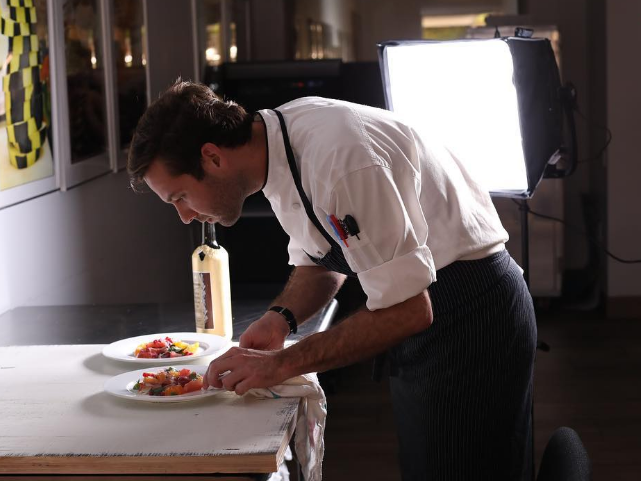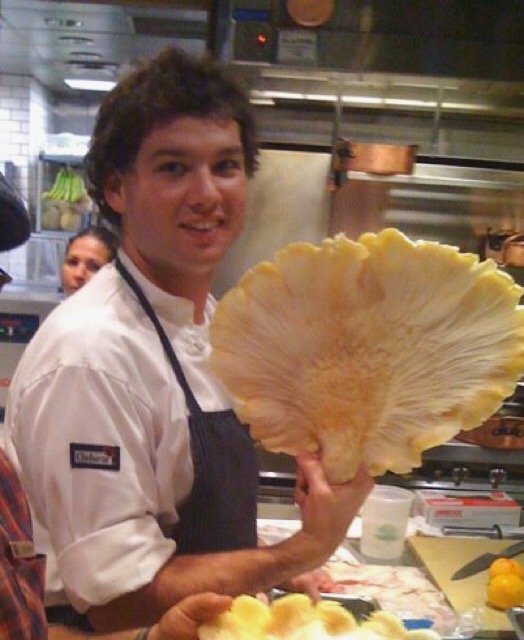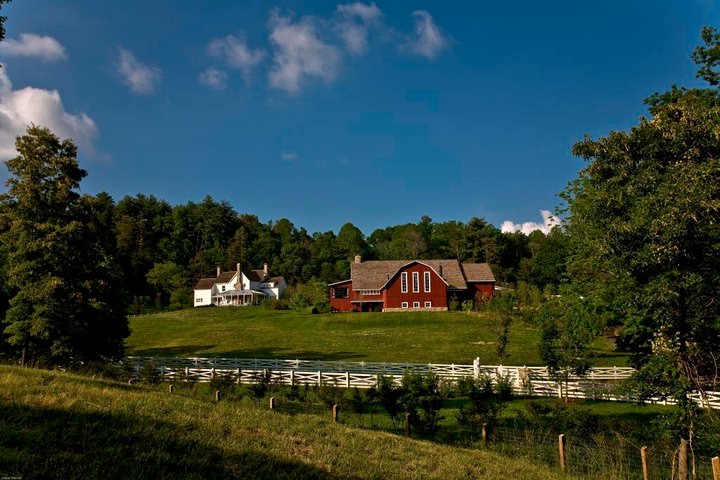In the early 2000s, I cracked open "The French Laundry Cookbook" for the first time. A young and inexperienced cook, I was working in a hotel kitchen and still only halfway through my culinary school education. I remember the moment with vivid clarity — pouring over the glossy, crisp pages with my fellow line cook, Caleb. The sous chef, who had brought in the cookbook for inspiration, was taken aback that we hadn’t seen it before, let alone heard of the man behind the book, Chef Thomas Keller.

Why has this seemingly mundane moment stuck like glue to my otherwise mediocre memory?
Because it was truly pivotal in my culinary career. Up to this point, I was cooking because I was having fun, but my career path was rather aimless. I didn’t have goals, wasn’t making strides to advance my skills and was putting minimal effort into my culinary education.
But then "The French Laundry Cookbook" came along and showed me what food could be: refined, inspired, creative, elegant, restrained yet exceedingly complex and simply exquisite! This was the moment when I woke up — my eyes opened to the world of cuisine. I began developing my goals and narrowed my focus on working in fine dining. I started collecting cookbooks from the hottest restaurants at the time — Alinea, Momofuku, Noma, Eleven Madison Park — reading them cover to cover, imprinting the images deeply into my brain. I made it my new mission to train in the kitchens of one of these restaurants.
Young and cocky, I sent resume after resume, sure that one of them would hire me.

Months later and with no offers on the table, I saw an article about a collaborative dinner with the team at the then lesser-known Blackberry Farm in the foothills of the Great Smoky Mountains. Everything from the food to the space to the natural surroundings looked incredible.
Unfamiliar with the restaurant, I did some research and discovered that this exclusive meal was hosted by a working farm, inn and restaurant with close ties to Thomas Keller — the proprietor had trained with him.
The on-site restaurant called “The Barn” had just opened and was proving itself on par with the best restaurants in the country. Offering five- and nine-course tasting menus with ingredients sourced from the surrounding farmstead, it had an interesting twist that appealed to a budding young chef like myself. Plus, they did regular collaborations with leading chefs from around the world. It would be like working at all of the top fine dining establishments — only they would come to you.
I sent my resume right away. One week later and still no response, I called, emailed and sent my resume again. Two weeks later… still nothing.
But I didn’t give up. I called human resources to confirm that they received my application. “Did you forward it to the chef?” I inquired. They assured me that they had, but one month later, I still hadn’t heard from them. Unwilling to admit defeat, I called again, but this time directly to the restaurant front desk. I asked to speak with the chef and, shockingly, they put him on!
Nervously, I stumbled through my case and was offered a three-day stage on the spot. My persistence had paid off. I was headed to Tennessee.

After completing my stage, I ended up working at Blackberry Farm for two years. I did collaborative dinners with Daniel Boulud (my first weekend on the job!), Alain Ducasse, Tien Ho, Barbara Lynch, Judy Rodgers, Francois Payard, Michael Schwartz, Steven Satterfield and many, many more. I harvested fresh produce from the garden. I learned to make farmstead products — preserves and pickles, aged charcuterie, even cheese produced from the sheep on the farm. I was exposed to new skills, techniques, ideas, chefs and ingredients, and, most importantly, I excelled. I quickly worked my way through every station.
When the chef and executive sous chef traveled to New York City to cook at the James Beard House, they left me in charge of The Barn — I got to run the show! As much as I learned during my time at Blackberry Farm, in the end I realized that I wasn’t in love. I found the pace of fine dining to be too slow for my tastes, the diners too fussy, the service too precious, the costs too astronomical and the expectations too inflated.
I cherished my experience and had no regrets, but a career in crafting tasting menus was not for me. I had to see what else was out there. I moved to New York, the food capital of the country, to explore the endless possibilities available in the food industry.
Soon enough, I was working for James Beard Award-nominated chef Anna Klinger, and rose to the rank of chef de cuisine at her restaurant Bar Corvo. Anna's restaurants (she also owns Al Di La and Lincoln Station) had the kind of casual and convivial environment I connected with, but maintained an emphasis on exceptional, authentic and honest food.
While I felt I was cooking some of the best food of my life at the time, I began to see my role as chef morphing into that of a teacher. As my career progressed, I found a love for sharing my knowledge of food and cuisine. As a chef running a restaurant, I realized how much I cherished those teaching moments on the job — watching someone master an emulsion for the first time or slice into a perfectly rosy grilled pork chop.
When I was offered a teaching position in the culinary arts program at ICE, I jumped on the opportunity. Finally, I had discovered a way to combine my two passions: cooking and teaching. My experience shows that with all of the confidence and determination in the world, you can still be wrong about which path is the best fit for you. But there is only one way to find out if you are destined to be the next Thomas Keller or not, and that is to commit to trying.
My philosophy in life is to figure out what you want and then go after it. Sometimes, you will be wrong and that’s okay. It's a cycle, and hopefully, you’ll never run out of things you want, and you’ll never run out of the drive to go after them.
Want to train in the kitchen with Chef Robert? Click here to learn about ICE’s award-winning Culinary Arts program.




